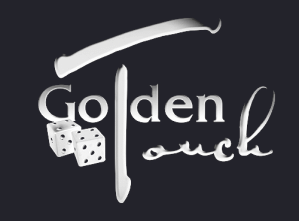
Long Rolls, Even With Great Dice Control Skills, Are Very Rare
What Should an Advantage Craps Players Expectations Be?
I was talking with a fairly seasoned craps player recently. As we talked, the conversation turned toward what could be done to improve performance at the tables.
Now this player has a very nice toss. The dice travel together while floating through the air; they land together, bounce together, gently hit the back wall and come to rest near the back wall. It is the kind of toss that most of us would be ecstatic with.
"What do you mean by improved performance?" I asked.
"Well," the response began, "I do fairly well now. I have several rolls in the teens and twenties, but every now and then I have some short rolls. I want to be able to consistently throw twenty to thirty numbers."
"Wouldnt we all," I replied, "wouldnt we all!"
Those who are serious about dice control and practice religiously are able to put together a series of rolls in the twenties and thirties from time to time. The Dominator had his back-to-back rolls of 30, 33, and 38 numbers before sevening out. But is even the great Dominator capable of throwing twenty, thirty, or forty numbers time after time?
Golden Touch™ often uses the game of baseball to draw analogies to throwing dice. A dice thrower is really an athlete just like a pitcher. He practices his sport (throwing dice) daily attempting to gain just a little more edge, just like a professional pitcher.
But even the best pitcher in professional baseball will have base hits and even home runs hit off the pitches he delivers. No amount of practice will produce a skill level so high that no one will get a hit off his pitches.
A pitcher holds the baseball a certain way, delivers it a certain way, and attempts to deliver the baseball at a very precise spot ant a very precise speed. The dice thrower sets the dice a certain way, delivers them a certain way, and attempts to deliver the dice at a very precise spot and speed.
But even the best pitchers and dice controllers are human. Any number of very minute aberrations in the grip or delivery can cause less than perfect throws; not enough spin, too much spin, too fast, too slow, too high, too low you get the idea.
Even when an absolutely perfect throw is delivered, once the baseball (or dice) leaves their hand, it is literally out of their hands out of their control. In baseball, a sudden gust of wind can cause a slight change that can be the difference between a ground out and an extra-base hit. In craps, table surfaces are not perfect by any means. If the dice hit the table just a few micrometers differently, it can cause dramatically different results.
So, repeating the question; is a very skilled dice controller capable of throwing twenty, thirty, or forty throws time after time? I submit this is an unrealistic expectation. There are just too many other influences on the dice to allow for results so consistent.
We sometimes use SRR (sevens-to-rolls-ratio) to indicate how well we are controlling the dice. Having an SRR of 6.5 (actually 1 seven in 6.5 throws of the dice) is good enough to have an advantage over the casino. Some of the very best controllers have SRRs around 9 or 10.
To get a feel for what type of hand lengths to expect with different SRRs, I ran some simulations in the Smart Craps software that GTC sells. All of the simulations used flat passline bets with no odds. Therefore in order to make any money, you need to have at least a 1.43% advantage on your throw to offset the 1.42% house edge for a passline bet. The simulation results are based on 10,000,000 rounds so there could have been some major fluctuations to the bankroll before obtaining the final statistics.
I found the results quite interesting.
With an SRR of 6.5 you have a 1.39% advantage meaning you had an edge of 2.81% that was offset by the house edge of 1.42%. At this level:
- 50% of the hands were 7.32 or less
- 5% of the hands were 25 or more and only
- 1% of the hands were 37 or more.
Looking at a couple of other statistics,
- over 10% of the hands were 2 (meaning point 7), and
- almost 11% of the hands were 3 (point number 7).
Over one fifth of the hands were 3 or less. Thats a lot of very short hands.
Okay, how about a god-like SRR of 11.
At this skill level, you have a 14% advantage very impressive, but somewhat expected. However, even at this stratospheric level of play:
- 50% of the hands were 10.9 or less
- Only 5% of the hands were 40 or more
And, almost 14% of the hands were point 7 or point number 7. That amounts to about one hand in seven. Still a very large number for such a high degree of skill.
From these numbers we can see that even though you have obtained the extremely rare dice god status, you still get your fair share of extremely short hands. And even more surprising to me, almost half your hands dont even make it to double digits.
Clearly, expecting to achieve consistent hands of twenty, thirty and forty is virtually out of reach. Having such a goal or expectation can only lead to frustration at the tables. Instead of trying to achieve long hands time after time, focus on the increasing advantage you can achieve and measure your progress in dollars taken off the tables rather than length of hands.
After all, taking money from casinos by playing their game is where the real fun is.
Until next time remember, Everyone has a photographic memory, some just dont have any film.
Stickman


